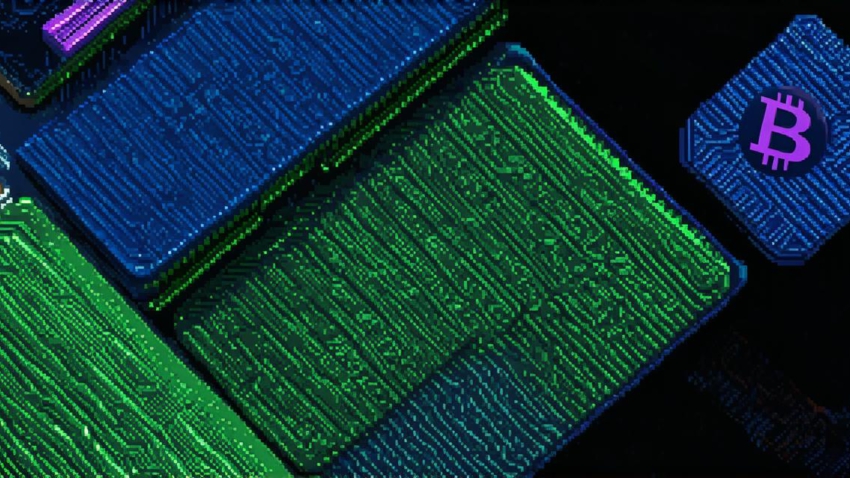
Understanding the mechanics of cryptocurrency gaming
Cryptocurrency gaming is a rapidly growing industry that combines two popular trends: gaming and cryptocurrencies. These games offer players the opportunity to earn digital currency while having fun, making them an attractive option for gamers looking to enter the crypto space. However, like any other industry, developing a successful cryptocurrency game requires understanding its mechanics and how they work.
In this guide, we will explore the key mechanics of cryptocurrency gaming, including the use of blockchain technology, smart contracts, and decentralized finance (DeFi). We will also discuss the different types of cryptocurrency games available, their benefits and drawbacks, and provide tips for developing successful games.
Blockchain Technology in Crypto Games
Blockchain technology is the backbone of cryptocurrency gaming, providing a secure and decentralized platform for game transactions. It allows players to transact with each other without the need for intermediaries such as banks, making it an attractive option for gamers who value privacy and security.
In addition to providing a secure platform, blockchain technology also enables players to earn cryptocurrency rewards. These rewards are often tied to specific in-game actions, such as completing quests or achieving high scores. As players accumulate these rewards, they can exchange them for real-world cryptocurrencies or other valuable assets.
One example of a successful game that uses blockchain technology is CryptoKitties. This game allows players to breed and collect rare digital cats that are stored on the Ethereum blockchain. The game has been a massive hit, with millions of players worldwide participating in its unique gameplay mechanics.
Smart Contracts in Crypto Games
Smart contracts are self-executing programs that run on the blockchain and enable secure and transparent transactions without the need for intermediaries. In cryptocurrency gaming, smart contracts are used to automate game transactions and ensure that they are fair and transparent.
For example, when a player completes a quest in a cryptocurrency game, a smart contract is triggered to release their reward. The smart contract automatically verifies the transaction and ensures that the player has met the requirements for the reward before distributing it. This ensures that the game remains fair and transparent, providing players with trust in the platform.
One example of a game that uses smart contracts is Decentraland. This game allows players to create and manage their own virtual real estate within a decentralized platform. The game uses smart contracts to automate transactions and ensure that they are secure and transparent.
Decentralized Finance in Crypto Games
Decentralized finance (DeFi) is a new financial system that operates on the blockchain, providing users with access to financial services such as lending, borrowing, and trading without the need for intermediaries. In cryptocurrency gaming, DeFi is used to provide players with access to financial services within the game’s ecosystem.
For example, some games offer players the ability to stake their in-game assets in order to earn interest or participate in governance decisions. This provides players with an additional way to generate revenue from the game and creates a sense of ownership and community within the platform.
One example of a game that uses DeFi is Uniswap Gaming. This game allows players to stake their in-game assets in order to participate in liquidity provision and earn rewards based on the performance of the game’s token. The game also offers players the ability to use their in-game assets to purchase real-world goods and services.
Types of Crypto Games
There are several types of cryptocurrency games available, each with its own unique features and benefits. These include:
- Collectibles Games: These games involve collecting rare digital items or characters that can be traded with other players. Examples include CryptoKitties and Rarible.
- Play-to-Earn Games: These games allow players to earn cryptocurrency rewards by playing the game. Examples include Axie Infinity and Splinterlands.
- Gaming Dapps: These games are built on decentralized platforms and offer a range of gaming features, including in-game currency, leaderboards, and social features. Examples include Decentraland and Somnium Space.
- DeFi Games: These games incorporate DeFi features into their gameplay mechanics, allowing players to earn cryptocurrency rewards through liquidity provision or other financial activities. Examples include Uniswap Gaming and Aavegotchi.
Benefits and Drawbacks of Crypto Games
Cryptocurrency games offer a range of benefits for both players and developers. These include:
- Opportunity to Earn Cryptocurrency: Players can earn cryptocurrency rewards by playing the game, making it an attractive option for gamers looking to enter the crypto space.
- Community Building: Games that incorporate social features and governance mechanisms encourage community building and foster a sense of ownership and investment in the platform.
- Revenue Generation: Developers can generate revenue through in-game purchases, advertising, and other monetization strategies.

However, there are also drawbacks to cryptocurrency games, including:
- Regulatory Risk: Cryptocurrencies are still a relatively new technology, and regulations around their use are not yet fully established. This creates uncertainty for developers and players alike.
- Volatility: The value of cryptocurrencies is highly volatile, making it difficult to predict or manage the long-term sustainability of a game.
- Technical Complexity: Developing a successful cryptocurrency game requires a deep understanding of blockchain technology, smart contracts, and DeFi protocols, which can be complex and difficult for some developers.
Tips for Developing Successful Crypto Games
To develop a successful cryptocurrency game, it is important to:
- Understand Your Audience: Know your target audience and design the game mechanics and features accordingly. This will help to ensure that the game remains engaging and attractive to players.
- Focus on User Experience: Provide a seamless user experience by designing the game interface and mechanics in an intuitive and easy-to-use way.
- Build a Strong Community: Encourage community building by incorporating social features and governance mechanisms into the game’s design.
- Stay Up-to-Date with Regulations: Stay up-to-date with regulatory changes around cryptocurrencies and ensure that your game complies with all relevant regulations.
- Keep Your Game Updated: Continuously update and improve your game to keep it fresh and engaging for players.
Conclusion
Cryptocurrency gaming is an exciting new industry that combines two popular trends: gaming and cryptocurrencies. However, like any other industry, developing a successful cryptocurrency game requires understanding its mechanics and how they work. By focusing on user experience, building a strong community, and staying up-to-date with regulations, developers can create games that are both engaging and profitable for players. As the space continues to evolve, we can expect to see even more innovative and exciting games emerge in the coming years.







